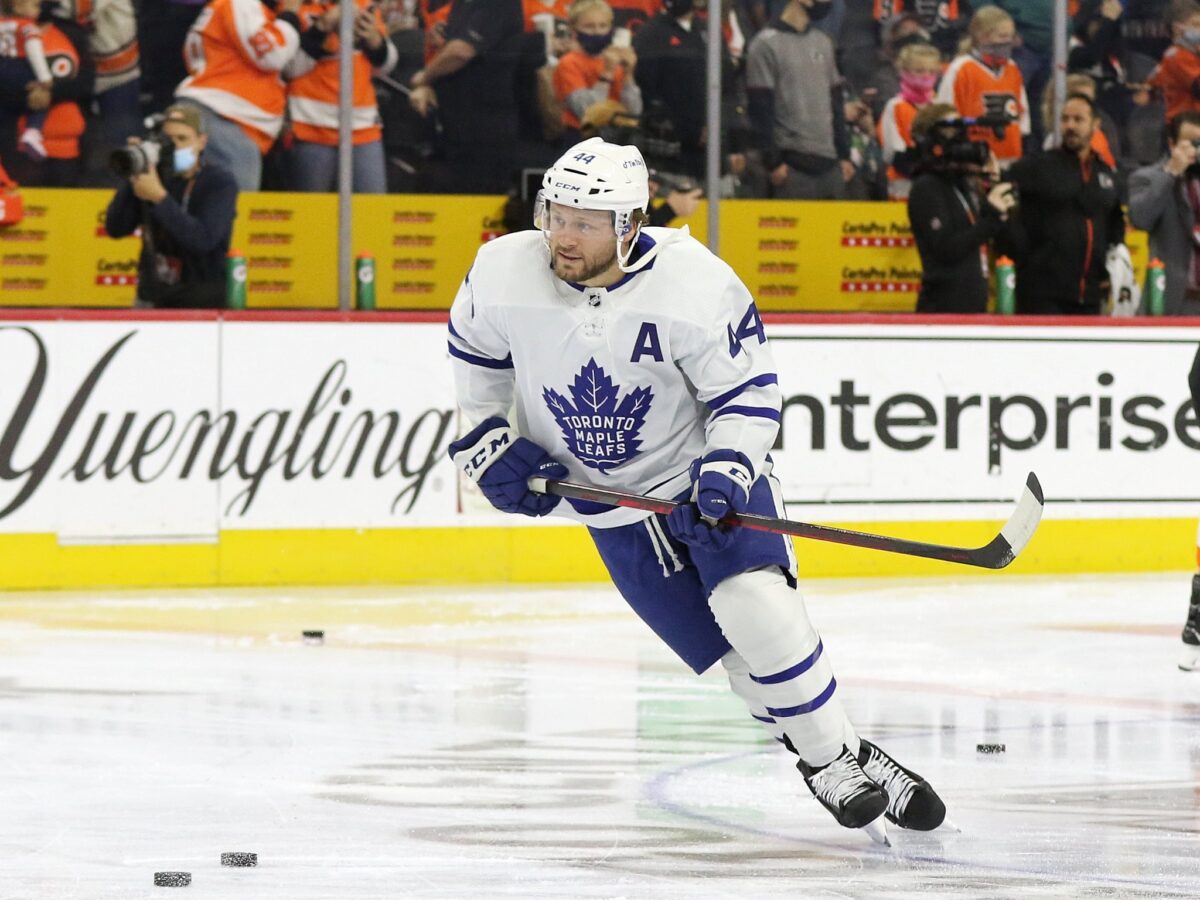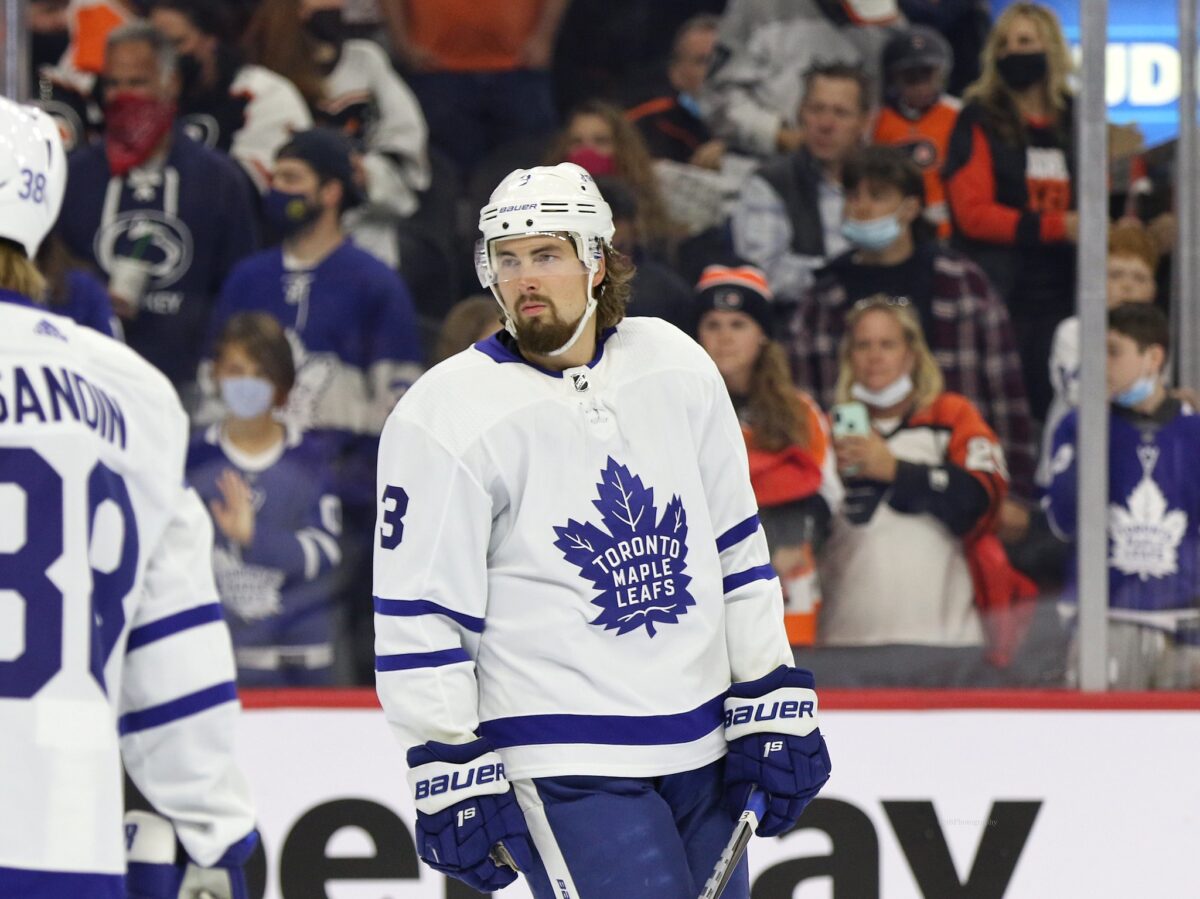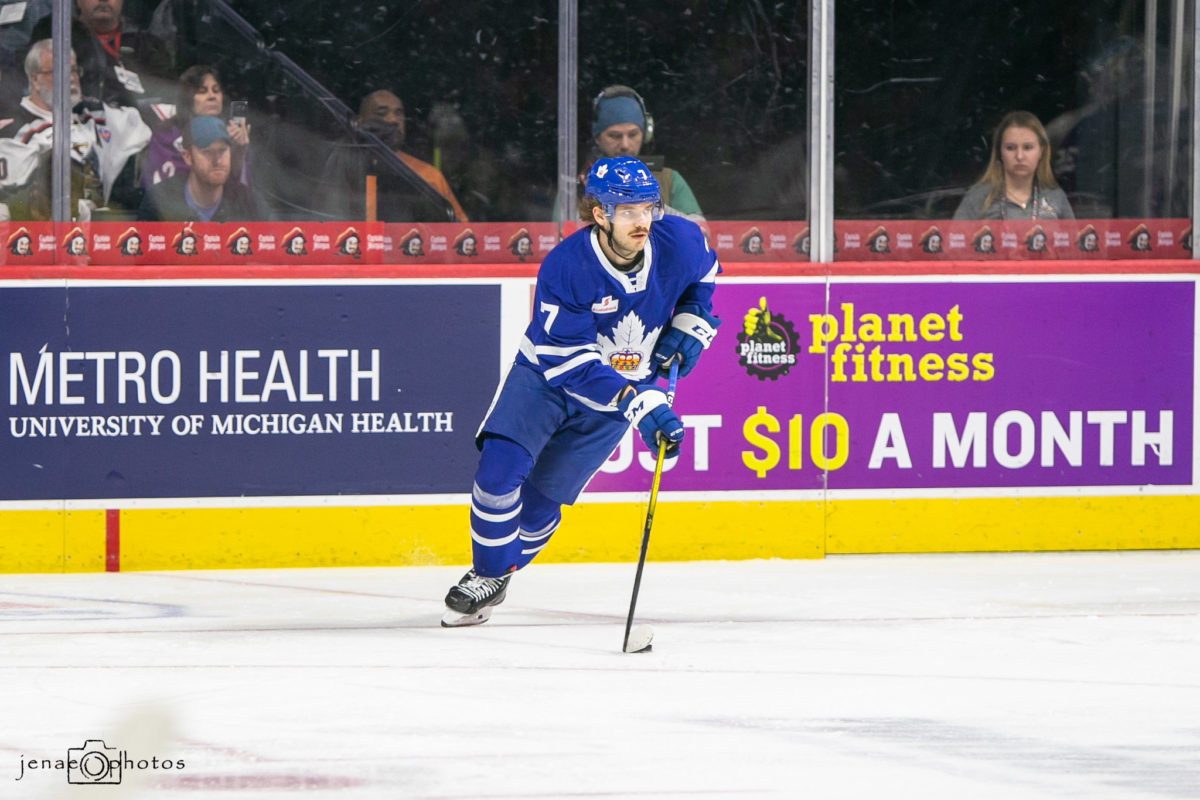We recently published a series of three articles ranking the Offensive play of the Maple Leafs’ defensemen, the Defensive Play of the Maple Leafs’ defensemen, and the Overall ranking of the Maple Leafs’ defense in the regular season.
Today we are going to look at how each defenseman ranked for Offensive and Defensive play in the first-round, seven-game loss, to the Tampa Bay Lightning in the playoffs.
Related: Maple Leafs’ Defensemen Ranked for Overall Play – 2021-22 Season
Once again we will be looking at five on five play per 60 minutes played in the “on-ice” categories of Shot-Attempts For and Against, Shots For and Against, Scoring-Chances For and Against, High-Danger Chances For and Against, Goals For and Against, and Expected-Goals For and Against, as tracked by Naturalstattrick.com.

To keep this as concise as possible, we won’t list all of the actual stats for each of the six offensive and defensive categories, but just give an overall ranking for offense and defense for each of the seven players that saw ice time in the playoffs.
Average Rank for Offensive Play
| Rank | Name | Average Ranking |
| 1 | Morgan Rielly | 2.8 |
| 2 | Mark Giordano | 3.0 |
| 3 | T.J. Brodie | 3.3 |
| 4 | Justin Holl | 4.0 |
| 5 | Timothy Liljegren | 4.2 |
| 6 | Ilya Lyubushkin | 5.2 |
| 7 | Jake Muzzin | 5.3 |
Average Rank for Defensive Play
| Rank | Name | Average Ranking |
| 1 | Brodie | 1.2 |
| 2 | Muzzin | 2.7 |
| 3 | Holl | 2.8 |
| 4 | Giordano | 3.8 |
| 5 | Rielly | 5.04.2 |
| 6 | Lyubushkin | 6.0 |
| 7 | Liljegren | 6.2 |
Overall Ranking for Defensemen Playoffs
| Rank | Name | Average Ranking |
| 1 | Brodie | 2.3 |
| 2 | Giordano | 3.4 |
| 3 | Holl | 3.4 |
| 4 | Rielly | 3.9 |
| 5 | Muzzin | 4.0 |
| 6 | Liljegren | 5.2 |
| 7 | Lyubsuhkin | 5.6 |
T.J. Brodie
After finishing sixth overall out of eight defensemen in the regular season, Brodie was, by the numbers, the best defenseman for the Maple Leafs in the playoffs. By that, we don’t mean he was just the best defenseman in the role given to him by head coach Sheldon Keefe. We mean that at five-on-five, he was the best defenseman on the team period.
Related: Maple Leafs’ Draft Picks That Got Away
Brodie led the team in time on ice at five-on-five, playing 118:13 minutes in total. He played against the opposing team’s best players, and he posted the best overall numbers in doing so.
Brodie’s overall ranking offensively was 3.3, which placed him third behind Morgan Rielly and Mark Giordano. However, his defensive numbers were by far superior to any other Maple Leafs’ defenseman. Defensively Brodie finished first in five of the six defensive categories, Shot-Attempts Against, Shots Against, Scoring-Chances Against, High-Danger-Chances Against, and Expected-Goals Against. He finished second in Goals Against. His overall ranking defensively was a stellar 1.2.

Despite posting so-so overall numbers during the regular season, which could be explained by his playing tough minutes, with multiple partners, and switching back and forth between the left and right-hand sides of the defense, when it counted in the playoffs, Brodie was number one.
Mark Giordano
What a pick-up by Maple Leafs’ general manager Kyle Dubas. Giordano was the most consistent of all the Maple Leafs’ defensemen in the regular season and the postseason. He ranked first in defensive stats for the regular season and fourth in offensive stats, to finish with an overall ranking of 3.1 combined.
Related: Bulldogs Win 2022 OHL Championship After Game 7 Win Over Spitfires
Then in the playoffs, Giordano placed second in the offensive stats and fourth in the defensive numbers. His overall rank of 3.3 in the playoffs was good enough for the second-place overall ranking in the postseason.
The fact that he is now signed for two more seasons at a mere $800,000 bodes well for the Maple Leafs. At 38 years of age, it might be expected that his skills have begun to deteriorate. However, he played this past season at such a high level of play and he should remain a valuable defenseman to have on the roster.
As a bonus, the influence he could have mentoring both Liljegren and Sandin could go a long way to helping them take the next step in their development.
Justin Holl
As we’ve stated previously, it’s no secret this was not a banner regular season for Holl. His underlying statistics in the regular season were a reflection of that, as he ranked fifth offensively and seventh defensively.
His numbers improved immensely in the playoffs. He finished third in defensive numbers and fourth in offensive numbers to give him an overall ranking of 3.4, identical to that of Giordano.

In our opinion, that’s a reflection on his defensive partners in the regular season and the playoffs. In the regular season, his most common partner was Muzzin, who posted the second-worst overall numbers of any Maple Leafs’ defensemen. In the postseason, his main partner was none other than the player he tied in the overall ranking with, Mark Giordano.
One thing we think this data does show is that Holl is best as a complementary, or support, player. He doesn’t drive the pair, but if given a strong partner, he can hold his own.
Morgan Rielly
In the playoffs, Rielly’s offensive skills came to the forefront as shown by his first-place ranking in the offensive numbers. As might be expected, what dragged his overall ranking down to 3.9 and a fourth-place ranking, was his fifth-place rank in defensive stats.
Related: 7 Cool Things About Jarome Iginla: Calgary Flames Hall of Famer
In Rielly’s defense, as Lyubshkin’s numbers show, we don’t feel Lyubushkin was the best partner for Rielly in the playoffs.
Jake Muzzin
In one sense, the ranking Muzzin received might not be really fair. He was coming off multiple concussions suffered late in the regular season and was reportedly suffering from another injury unrelated to those concussions throughout the playoffs. On the other hand, injuries have seemed to have become a regular issue with Muzzin. That leads us to question his ability to play at the level we’re used to seeing from him.
Whatever he was suffering from didn’t stop him from logging the second-most minutes at five-on-five in the postseason, at 118:06. It did seem to hinder his offensive play as he logged the worst offensive stats of any of the seven defensemen that played against the Lightning. It did not, however, seem to hurt his defensive play as he ranked second in defensive stats.
Timothy Liljegren
It’s difficult to rate Liljegren’s play in the playoffs because he only saw a total of 24:21 of ice time in two games. That’s an extremely small sample size.
His offensive numbers were all over the place and very contradictory. He finished first in Scoring-Chances For, and Goals For, but was last in High-Danger Chances For, and Expected-Goals For.

Defensively, his numbers were steadier; but, they were at or near the bottom. He ranked last in Shot-Attempts Against, Scoring-Chances Against, High-Danger Chances Against, and Expected-Goals Against.
On the one hand, we are tempted to give him a pass in the playoffs because of his lack of ice time. On the other hand, like Sandin the season before, his poor showing and lack of ice time in the playoffs might be an indication that he needs more time to develop his game.
Ilya Lyubushkin
For those of us who feel physicality is an important part of the game and something the Maple Leafs have been lacking in recent years, it appeared, by the eye test at least, that Lyubushkin was a welcome addition to the team.
Unfortunately, his numbers in the regular season and the playoffs did not support that analysis. Lyubsuhkin ranked ninth of nine players in the regular season and seventh of seven players in the playoffs.
From what we see and hear from both Dubas and head coach Keefe, the Maple Leafs rely heavily on analytics when it comes to rating the play of their players. If that’s the case, despite what he brings in physicality, the team might not be interested in bringing Lyubushkin back for another season.
Part of the reason he put up the not-so-great numbers may be the fact that he was playing up much further in the lineup than he should. We could see, that if the price were right, they could bring him back on the third pair.
Rasmus Sandin
Of course, because of an injury, Sandin did not play in the last twenty games of the regular season or the playoffs. We can only hope the summer will give him time to get over the injury and build some more muscle onto his 22-year-old body. Although he’s laid out some nice hits in his short NHL career, there seems to be a lot of attention given to his apparent lack of strength and physicality.
Related: Maple Leafs’ Defensemen Ranked for Defense – 2021-22 Season
That’s our ranking of the Maple Leafs’ defensemen for offensive and defensive statistics in the regular season and the playoffs. Next, we will turn our attention to the forwards.
[Note: I want to thank long-time Maple Leafs’ fan Stan Smith for collaborating with me on this post. Stan’s Facebook profile can be found here.]
You may also like:
- Maple Leafs Should Keep Murray as Third Goaltender
- Flames & Maple Leafs Trade History Revisited
- 3 Players the Maple Leafs Could Target on a PTO
- NHL Rumors: Oilers, Maple Leafs, Capitals, Kuznetsov News
- Maple Leafs Should Target Evgeny Kuznetsov as Reclamation Project
